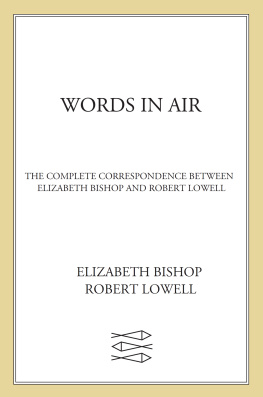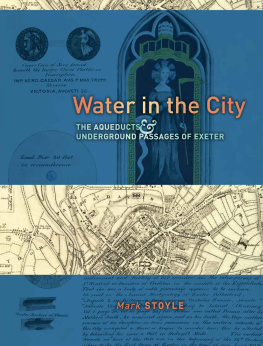A LETTER.
Table of Contents
(COPY.)
My Dear Lord ,
In the course of our conversation yesterday you did me the honour of saying that I had presented the decision of the Judicial Committee of the Privy Council in a somewhat new point of view to you, and you wished that I would put the same down in writing for your more mature consideration. I do so nownot without the hope that my view, if it be correct, may tend to quiet the fears of some of our more anxious friends by showing them what the effect of that Judgment really is, and how little when properly understood it affects the future prospects of the Church. But first I would wish to point out that a decision is not properly to be treated as a law. It differs in this most material circumstance; that a law governs all future decisions, whether the Judges appointed to decide agree with the law or not. But a decision is questionable by them, and only binds them if they agree with it. I grant that a long course of uniform decisions constantly made, and often recurring, would probably be so nearly equivalent as to be treated practically as a law. But we are speaking of one decision and the effect of it. We have now a practical illustration of that in a case in which you are interested. The Queens Bench have refused you a rule for a prohibition, and you are questioning that, by renewing the same application to the Common Pleas. If they agree with the Queens Bench on the merits of the argument, they will decide as the Queens Bench have done. If they do not agree they will without scruple act contrary to that decision. If the decision of the Queens Bench were a law they could not do this. It may be said no doubt that these are courts of co-ordinate jurisdiction, and that the Judicial Committee is the Court of ultimate appeal. But this really makes no difference. It is clear that any future Judicial Committee could overrule this decision; and so might even any inferior court subject however to the consequences of an ultimate appeal against their decision, to which appeal the Judicial Committee itself is not liable. In truth, where the House of Lords makes in a civil suit, a decision contrary to the rules of law, the courts of law very soon, although they do not expressly overrule it, make it practically inoperative by distinguishing every case which comes before them from it, however minute such distinctions may be; whilst if the decision be right and well-founded, they carry it into effect fully and with all its reasonable consequences as corollaries from it. To those therefore, and there are many, who think that this decision of the Judicial Committee is wrong, I should say, lay before the public the grounds of your difference of opinion openly, in the shape of well-considered arguments; and in the next case of a similar nature which arises go with confidence in those arguments to the next Judicial Committee, and you will probably succeed, even if the same Judges sit there, and more certainly if their successors do so, in overruling this erroneous decision. In the mean while you will say, there is the evil of a clerk of heretical opinions admitted into the Church; I admit the evil; but suppose it was one who had been acquitted, improperly perhaps in your opinion, of any other offence by competent authority, would it be fair to say, because the tribunal had mistakenly acquitted him, that it was decided that the Church might properly be served by a criminal, and therefore that you must leave it? certainly not. This clerk is in a similar category. In your opinion he is a heretic. But it has been adjudged otherwise by a competent tribunal, and you must acquiesce in this instance, in that judgment which you deem erroneous. This, my dear Lord, is the advice I should venture to give under these circumstances, and I hope that in so doing, I should have your concurrence.
But there is another point of view also, and I think a very material one in which I wish to present the decision to you. And it was this of which we were speaking yesterday. Supposing the decision to be of greater weight in governing future cases than for the above reasons I think it is, what is the decision itself? Now it seems to me quite clear that the governing part of every decision as to future cases is the rule of law laid down therein. If the Judges who decide make a blunder as to the facts of the particular case, and upon that erroneous view decide it, laying down the law correctly supposing those facts to be true, the decision may be a wrong one in the individual case, but the law laid down will be right and may well govern in future.
To illustrate my proposition let me suppose that the Judicial Committee in stating what they, from the facts before them, considered to be Mr. Gorhams opinions, had stated that they considered him as holding that all children duly baptized in the mode prescribed by our Liturgy were thereby regenerateand had proceeded to lay down as a rule that a Clergyman holding that opinion could not justly be refused institution by your lordship. Who could have differed from them as to the rulehowever much we might have been surprised as to their opinion on the facts? The rule would be that which would govern future cases. It would have been determined that Clergymen holding the specified opinions must be institutedand no injury could arise to the Church from such a decision. Our complaint would be that Mr. Gorham did not hold these opinions in fact. This wrong would only apply to his individual case.
Let me now call your attention to what the Judicial Committee have done. They begin by stating, as I have suggested, Mr. Gorhams opinions as they collect them from the documents laid before them. They are these.
1. That Baptism is a Sacrament generally necessary to salvation; but that the grace of regeneration does not so necessarily accompany the act of Baptism that regeneration invariably takes place in Baptism.
2. That the grace may be granted before, in, or after Baptism.
3. That Baptism is an effectual sign of grace by which God works invisibly in us, but only in such as worthily receive it: in them alone it has a wholesome effect: and that without reference to the qualification of the recipient it is not in itself an effectual sign of grace.
4. That infants baptized and dying before actual sin, are certainly saved.
5. But that in no case is regeneration in Baptism unconditional.
Upon these opinions, and these alone, the Court proceeds to give judgmentand they hold that your Lordship was not justified in refusing institution to a Clerk holding these opinions. Even if the decision was in the nature of a law, which it is not, it is at the most a law framed in these specific terms. Now taking this to be so, I am somewhat at a loss to perceive which of these five propositions taken to the letter necessarily and clearly militates against any known rule or doctrine of the Church of England.
Does the first? For I have divided the statement into parts for greater convenience. I apprehend not. For that adults being baptized and not sincerely believing what they profess to believe are not regenerate in Baptism, is a proposition, I believe not disputed by many. If this be true, regeneration does not so necessarily accompany the act of Baptism, that regeneration












